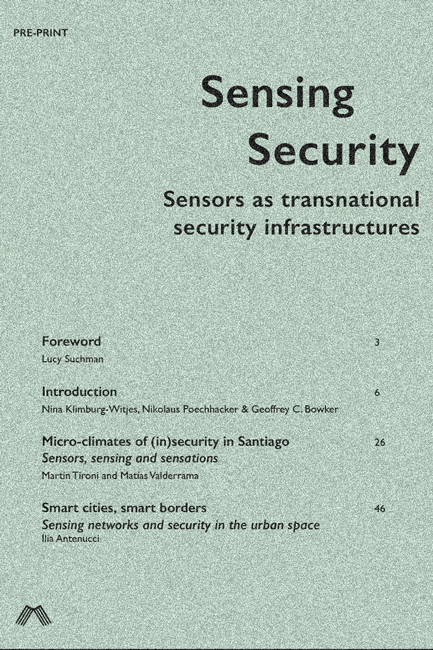Sensing infrastructures are increasingly disseminating and performing across the urban space techniques that are specific to borders, and especially to ‘smart’ borders, such as algorithmic profiling, biometrics recognition, scanning and screening. Drawing on fieldwork conducted in New Town Kolkata in India, this chapter explores how, in contrast to popular narratives of smart cities as seamless interconnected spaces, the processes of urban digitisation entail bordering practices that work through the sensing networks and devices that are becoming more and more embedded in everyday life – bus shelters, water and electricity meters, garbage bins, home automation, apps and so on. The chapter discusses the political effects of ubiquitous sensing networks from two perspectives. First, it is suggested that sensing infrastructures introduce a new distribution of the sensible (Rancière 2000), setting boundaries between the different aspects of reality and perception, and measuring them incessantly; in this sense, the border operates at an ontological and epistemic level. Second, the chapter goes beyond the paradigm of surveillance/dataveillance to look at the nexus between algorithmic modelling, preemption and security decisions (Amoore 2013; De Goede et al. 2014) in the government of digital cities. This chapter contributes to an understanding of algorithms as creating new regimes of visibility and worth that are politically charged. At the same time, a new regime of invisibility is created, in which the code strings and operative systems that process urban data remain largely inaccessible not only to citizens but also to the city agencies that are expected to act upon data.
Publications

Smart Cities, Smart Borders. Sensing Networks and Security in the Urban Space
Sensing In/Security. Sensors as Transnational Security Infrastructures, edited by Nina Klimburg-Witjes, Nikolaus Pöchacker, and Geoff C. Bowker. Manchester: Mattering Press.